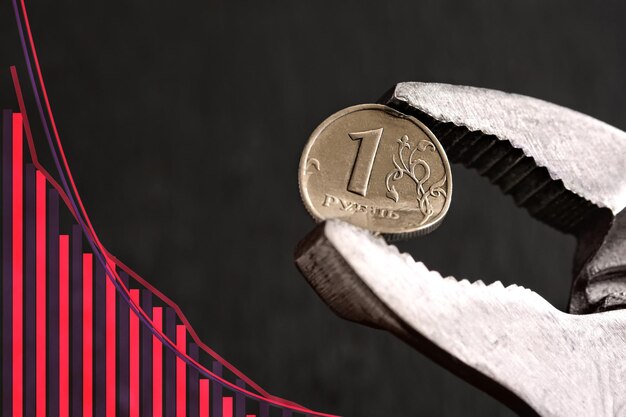If you’re interested in diving into the world of cryptocurrencies, one of the first steps you’ll need to take is to get yourself a Bitcoin address. A Bitcoin address serves as your unique identifier, similar to how an email address works. It allows you to send and receive Bitcoin, the most popular and widely used cryptocurrency.
To get a Bitcoin address, you’ll need to set up a digital wallet. This wallet is where you’ll store your Bitcoin and manage your transactions. There are various types of wallets available, ranging from software wallets that you can install on your computer or smartphone, to hardware wallets that offer enhanced security.
Once you’ve chosen a wallet, you can generate your Bitcoin address. This address is a long string of alphanumeric characters, similar to a bank account number. It’s important to note that a Bitcoin address is case-sensitive, so you must enter it accurately when sending or receiving Bitcoin. To make it easier to share your Bitcoin address with others, you can also generate a QR code, which can be scanned by mobile devices for convenient transfer of funds.
With your Bitcoin address in hand, you’re now ready to start your cryptocurrency journey. Whether you’re looking to invest, trade, or simply explore the possibilities of blockchain technology, having a Bitcoin address is a crucial first step. Remember to keep your wallet secure and back up your private keys, as losing access to your Bitcoin address can result in permanent loss of your funds. So, take the time to learn about Bitcoin wallets and get started on your exciting cryptocurrency adventure!
What is Bitcoin?
Bitcoin is a decentralized digital currency, without a central bank or single administrator, that can be sent from user to user on the peer-to-peer bitcoin network without the need for intermediaries.
Bitcoin is the first and most well-known cryptocurrency, created by an anonymous person or group of people using the pseudonym Satoshi Nakamoto in 2009. It operates on a technology called blockchain, which is a distributed ledger that records all transactions made with bitcoins.
Bitcoin is often referred to as digital gold because it shares some characteristics with gold, such as scarcity and the ability to store value over time. However, it is also different from traditional currencies and gold in many ways.
Unlike traditional currencies, bitcoin is not issued or regulated by any government or central authority. Instead, it is generated through a process called mining, where powerful computers solve complex mathematical problems to validate transactions and add them to the blockchain.
Bitcoin can be used as a medium of exchange for goods and services, or as an investment asset. It can be bought, sold, and exchanged on various cryptocurrency exchanges.
Bitcoin transactions are recorded on the blockchain, publicly visible to anyone who wants to see them. However, the identities of the individuals involved in the transactions are not publicly disclosed. This provides a certain level of privacy and security, as it is difficult to trace the owners of bitcoin addresses.
Bitcoin has gained significant popularity and recognition in recent years, with many businesses and individuals accepting it as a valid form of payment. It has also attracted a lot of attention from investors, as its value has fluctuated greatly over time.
Overall, bitcoin is a revolutionary technology that has the potential to change the way we think about money and financial transactions. It offers a decentralized and transparent alternative to traditional banking systems, with the potential for lower fees and faster transactions.
Why do you need a Bitcoin address?
A Bitcoin address is a unique identifier that allows you to send and receive Bitcoin, the world’s most popular decentralized cryptocurrency. It is similar to a digital wallet, but without the physical wallet part. Just like a bank account, you need a Bitcoin address to store and manage your Bitcoin funds.
Secure transactions
Having a Bitcoin address allows you to securely send and receive Bitcoin transactions. When you want to receive Bitcoin, you can share your Bitcoin address with the sender, and they can send the coins directly to your address. Similarly, when you want to send Bitcoin, you need the recipient’s Bitcoin address to ensure the funds go to the right place.
Bitcoin addresses are generated using complex mathematical algorithms, making it nearly impossible for someone to guess or forge your address. This ensures the security of your transactions and protects your funds from being stolen or tampered with.
Ownership and control
By having a Bitcoin address, you have complete ownership and control over your Bitcoin funds. Unlike traditional banks, where you rely on a central authority to manage your funds, Bitcoin gives you the power to be your own bank.
Your Bitcoin address is associated with a private key, which is a secret code that allows you to access your funds and make transactions. Only you have access to this private key, and it should be kept secure. With your Bitcoin address and private key, you can send, receive, and manage your Bitcoin without any intermediaries.
Having a Bitcoin address also allows you to store and track your transaction history. You can view all the transactions associated with your address on the blockchain, which is a public ledger that records all Bitcoin transactions.
In summary, a Bitcoin address is essential for anyone who wants to enter the world of cryptocurrencies. It provides secure transactions, ownership, and control over your funds, and the ability to track your transaction history. So, if you’re ready to start your cryptocurrency journey, getting a Bitcoin address is the first step you need to take.
Getting a Bitcoin address
If you want to start your cryptocurrency journey and own some Bitcoin, the first step is getting a Bitcoin address. A Bitcoin address is similar to a bank account number and is used to receive and send Bitcoin transactions. Here’s how you can get a Bitcoin address:
1. Choose a Bitcoin wallet
Before you can get a Bitcoin address, you need to choose a Bitcoin wallet. A Bitcoin wallet is a software application that allows you to securely store, send, and receive Bitcoin. There are various types of Bitcoin wallets available, including desktop wallets, mobile wallets, and web wallets. Research and choose a wallet that meets your needs in terms of security, convenience, and features.
2. Install the Bitcoin wallet
Once you’ve selected a Bitcoin wallet, you need to install it on your device. If you’re using a desktop wallet, download and install the software on your computer. For mobile wallets, you can find and download the app from the respective app stores. Web wallets can be accessed through your web browser, so no installation is required.
3. Generate your Bitcoin address
After installing the wallet, you can generate your Bitcoin address. This process may vary depending on the wallet you’re using, but it usually involves navigating to the “Receive” or “Addresses” section of the wallet and clicking on the “Generate Address” button. Your Bitcoin address will be a long string of alphanumeric characters, similar to “1A1zP1eP5QGefi2DMPTfTL5SLmv7DivfNa”. Make sure to copy and save this address in a secure location as you will need it to receive Bitcoin.
It’s important to note that each Bitcoin wallet will have its own unique way of generating and managing Bitcoin addresses. Some wallets may even generate a new address for each transaction to enhance privacy and security. Be sure to follow the instructions provided by your chosen wallet to generate and manage your Bitcoin addresses correctly.
Choosing a Bitcoin wallet
When starting your cryptocurrency journey, one of the first steps is choosing a Bitcoin wallet. A Bitcoin wallet is a digital wallet that allows you to store, send, and receive Bitcoin and other cryptocurrencies.
There are various types of Bitcoin wallets available, and each has its own unique features and security measures. It’s important to choose a wallet that suits your needs and provides the level of security you are comfortable with.
Types of Bitcoin wallets
1. Software wallets: Software wallets are applications that you can install on your computer or mobile device. They provide a convenient way to manage your Bitcoin and usually have user-friendly interfaces. However, since they are connected to the internet, they can be vulnerable to hacking and malware attacks.
2. Hardware wallets: Hardware wallets are physical devices that store your Bitcoin offline. They are considered one of the most secure options as they store your private keys offline, away from potential online threats. Hardware wallets are typically more expensive than software wallets but offer a higher level of security.
3. Paper wallets: Paper wallets are physical copies of your Bitcoin addresses and private keys printed on a piece of paper. They are a completely offline storage option and are immune to hacking and malware attacks. However, paper wallets can be easily damaged, lost, or stolen if not stored securely.
Factors to consider
When choosing a Bitcoin wallet, there are several factors to consider:
Security: Consider the security features of the wallet, such as encryption, two-factor authentication, and seed backups. Choose a wallet that provides a high level of security to protect your funds.
Usability: Look for a wallet that is user-friendly and easy to navigate, especially if you are new to cryptocurrency. Consider the available features, such as transaction history, balance tracking, and wallet compatibility with different platforms.
Reputation: Research the wallet provider and read reviews from other users to ensure that the wallet is reputable and reliable. Look for wallets that have been in the market for a while and have a good track record.
Compatibility: Check if the wallet is compatible with your operating system or device. Some wallets may only support specific platforms, so it’s essential to choose one that works for you.
Remember, choosing a Bitcoin wallet is an important decision that directly impacts the security and accessibility of your cryptocurrency. Take the time to research different options and consider your needs and preferences before making a choice.
Creating a Bitcoin address
Before you can start your cryptocurrency journey, you need to create a Bitcoin address. A Bitcoin address is similar to a bank account number, but instead of being linked to your personal information, it is linked to your cryptocurrency wallet. It is used to send and receive Bitcoin transactions.
Step 1: Choose a wallet
The first step in creating a Bitcoin address is to choose a cryptocurrency wallet. There are several types of wallets available, including web-based wallets, desktop wallets, and hardware wallets. Each type has its advantages and disadvantages, so it’s important to do your research and choose a wallet that suits your needs.
Step 2: Generate an address
Once you have chosen a wallet, you can generate a Bitcoin address. In most wallets, this process is as simple as clicking on a “Receive” or “Generate” button. The wallet will then generate a unique Bitcoin address for you.
Note: It is important to keep your Bitcoin address private and secure. Anyone who has access to your address can view your transaction history and potentially steal your Bitcoin.
Step 3: Share your address
Now that you have a Bitcoin address, you can start sharing it with others. You can use your Bitcoin address to receive payments from friends, family, or clients. You can also use it to make purchases from online merchants who accept Bitcoin.
Tip: It’s a good practice to regularly generate new Bitcoin addresses to enhance your privacy and security.
Congratulations! You have successfully created a Bitcoin address and are now ready to start your cryptocurrency journey. Remember to keep your private keys safe and always stay informed about the latest security practices to keep your funds secure.
Your cryptocurrency journey begins
Welcome to the exciting world of cryptocurrency! If you’re looking to get started with Bitcoin and other digital currencies, the first step is to obtain a Bitcoin address. This address is where you’ll receive, store, and send your Bitcoin.
But what exactly is a Bitcoin address? It’s a unique identifier consisting of alphanumeric characters that serves as your digital wallet’s public key. Just like with a traditional bank account, you can share this address with others to receive funds, and you’ll need it to send funds to someone else’s wallet.
Getting your own Bitcoin address is easy. There are multiple ways to do this, depending on your preferences and needs.
If you’re a beginner, you might consider using a web-based wallet. These wallets are hosted by third-party providers who handle the technical aspects of securing and managing your Bitcoin. Signing up for a web wallet is usually as simple as creating an account on a website.
Alternatively, you can download and install a Bitcoin wallet application on your computer or mobile device. These wallets give you more control over your funds since they store your private keys locally, but it’s essential to ensure you’re using a trustworthy and secure wallet.
Once you have a Bitcoin address, you’re ready to start your cryptocurrency journey. You can acquire Bitcoin through various methods, such as purchasing it on a cryptocurrency exchange or using peer-to-peer platforms. You can also earn Bitcoin by participating in mining or engaging in freelance work that pays in cryptocurrency.
Remember to practice good security measures to protect your Bitcoin. Keep your private keys safe and secure, and regularly back up your wallet to prevent the loss of your funds. Additionally, be cautious of potential scams and phishing attempts, as the cryptocurrency world can attract malicious actors.
Now that you have learned how to get a Bitcoin address and understand the basics of starting your cryptocurrency journey, it’s time to dive in and explore the vast possibilities of the digital currency space. The world of Bitcoin and other cryptocurrencies is dynamic and continuously evolving, offering countless opportunities for individuals to engage in a decentralized financial system.
So, get your Bitcoin address, secure your funds, and embrace the future of finance with cryptocurrencies!
Question-answer: How to get a bitcoin address
How do you create a Bitcoin wallet, and what steps are involved in setting up a new wallet using a wallet app?
Creating a Bitcoin wallet involves downloading a reputable wallet app, such as Coinbase or Electrum, and following the app’s setup process. Typically, users need to choose a strong password, secure their recovery phrase, and complete any identity verification steps.
What is the address format for a Bitcoin receiving address, and why is it crucial for users to understand the differences between legacy and newer address formats?
The address format for a Bitcoin receiving address can be in legacy (starting with a ‘1’) or newer (starting with ‘bc1’) formats. Understanding the differences is crucial to ensure compatibility with different wallets and platforms.
Why is it essential for Bitcoin users to know how to find their Bitcoin receiving address, and where can they typically locate this information within their wallet app?
Knowing how to find your Bitcoin receiving address is essential for receiving funds. Users can typically find this information within their wallet app, often in the “Receive” or “Receive Bitcoin” section.
How can users automatically generate a new address for receiving Bitcoin, and what advantages does this feature offer in terms of privacy and security?
Many wallet apps allow users to automatically generate a new address for receiving Bitcoin. This feature enhances privacy and security by making it more challenging to trace a user’s transaction history.
What are the different types of crypto wallets, and how does the distinction between hot and cold wallets impact the security of crypto assets?
There are two main types of crypto wallets: hot wallets (connected to the internet) and cold wallets (offline). Cold wallets, such as hardware wallets, offer enhanced security by keeping private keys offline, while hot wallets are more convenient for daily transactions.
How does the process of restoring your wallet work, and why might users need to restore their wallet, especially when switching to another wallet or device?
Restoring a wallet typically involves entering the recovery phrase or private key into a new wallet app. Users may need to restore their wallet when switching to a new device or if their current wallet becomes inaccessible.
Why is the public and private key pair crucial in the context of crypto wallets, and how do these keys secure and facilitate transactions within the Bitcoin blockchain?
The public and private key pair is essential for securing crypto assets. The public key serves as the receiving address, while the private key is kept secret and used to sign transactions, providing a secure and verifiable way to access and control funds on the Bitcoin blockchain.
What is the significance of different address types in the crypto space, and how are these address types used in storing and accessing btc?
Different address types, such as legacy and Segregated Witness (SegWit), impact how transactions are processed on the blockchain. Understanding address types is crucial for compatibility and efficient use of the Bitcoin network.
How can users use a Bitcoin wallet to send and store crypto, and what considerations should be taken into account when sending funds from one wallet to another?
Users can use a Bitcoin wallet to send and store crypto by selecting the “Send” option, entering the recipient’s address, and specifying the amount. Considerations include double-checking the recipient’s address, transaction fees, and network confirmation times.
Why is having more than one wallet advisable for storing crypto funds, and how does using multiple wallets enhance security and flexibility in managing crypto assets?
Having more than one wallet is advisable to enhance security and flexibility. Users can use different wallets for various purposes, such as a hot wallet for daily transactions and a cold wallet for long-term storage. This strategy reduces the risk associated with a single point of failure.






No responses yet